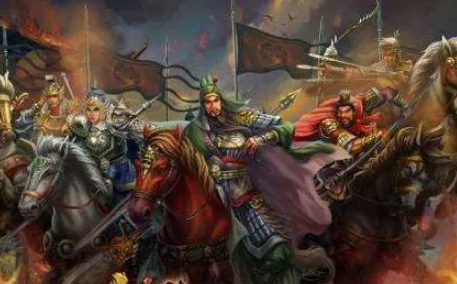On the historical stage of the Three Kingdoms, Wei, Shu, and Wu each displayed their abilities and competed for the world. Interestingly, despite Wu playing an important role in the Battle of赤壁 and stabilizing Jiangdong in the decades that followed, the number of Wu's surrendered generals in historical records is far less than that of Wei and Shu. The reasons behind this are worth exploring and reflect Wu's strength and status during the Three Kingdoms period.

1. Military Strength of Wu
Under the leadership of Sun Jian, Sun Ce, and Sun Quan, Wu gradually established a powerful military force. Especially during Sun Quan's reign, Wu possessed a well-trained navy and elite army. After the Battle of赤壁, Wu consolidated its rule in Jiangdong and became a force to be reckoned with in the Three Kingdoms.
2. Political Stability of Wu
Compared to the political struggles within Wei and Shu, Wu enjoyed relatively stable politics under Sun Quan's long-term rule. Sun Quan was skilled at using talents, and outstanding generals and advisors such as Zhou Yu and Lu Xun fully demonstrated their abilities in Wu. This stable political environment reduced the possibility of generals surrendering.
3. Strategic Advantage of Geographical Location
Located downstream of the Yangtze River, Wu had a natural geographical advantage. The Yangtze River provided additional defensive capabilities for Wu as a natural barrier. At the same time, Wu's navy had an absolute advantage on the Yangtze River and the East China Sea, enabling Wu to occupy a favorable position in external wars and reducing the likelihood of generals being captured or surrendering.
4. Culture and Loyalty
Wu's culture was relatively unique, and the Sun family had operated in Jiangdong for many years, deeply winning the hearts of the people. Generals and soldiers had a high degree of loyalty to the Sun family, which is one of the reasons why even when the war situation was unfavorable, few Wu generals chose to surrender.
Conclusion:
Although the number of surrendered generals in Wu during the Three Kingdoms period was inferior to Wei and Shu, this did not mean that its strength was insufficient. On the contrary, Wu had solid foundations in military, politics, geography, and culture. These factors worked together to establish Wu's unique position in the Three Kingdoms and ultimately led to the phenomenon of fewer surrendered generals in Wu. By exploring this phenomenon, we can gain a deeper understanding of Wu's strength and historical status during the Three Kingdoms period.
Disclaimer: The above content is sourced from the internet and the copyright belongs to the original author. If there is any infringement of your original copyright, please inform us and we will delete the relevant content as soon as possible.































